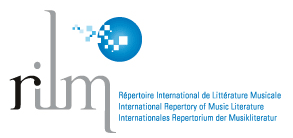Estrategias de diferenciación en la composición musical: Mario Lavista y el México de fines de los sesenta y comienzos de los setenta.
Resumen
En la vida musical y artística de México, la década de los sesenta y el comienzo de los setenta constituyen un singular momento de replanteamiento del futuro y crítica del pasado. Dentro de este período abordamos aquí la primer década como compositor de Mario Lavista (1943), un protagonista clave cuyas contribuciones ilustran muchos de los aspectos que orientan el perfil musical de la segunda mitad del siglo XX en México. A lo largo del artículo analizamos la manera como en estos años Lavista se relaciona con las vanguardias norteamericanas y europeas. Se describe la secuencia de obras en las que el compositor utiliza lenguajes atonales, experimentación con nuevas técnicas instrumentales y la reinvención del rol del intérprete. Estas acciones sirven como estrategias de diferenciación que alimentan el discurso de oposición al nacionalismo que permea la recepción de Lavista. El estudio más detallado de esta primera década en la obra del compositor previene que quede rezagada dentro de los discursos históricos del mismo, o que simplemente sea vista como una etapa inicial. Si bien puede decirse que en obras posteriores Lavista entra en una etapa diferente, muchos de los ingredientes que hasta hoy constituyen su lenguaje están ya presentes en este período inicial.
Descargas
Descargas
Publicado
Número
Sección
Licencia
Derechos de autor 2018 Luisa Vilar Payá, Ana R. Alonso Minutti

Esta obra está bajo una licencia internacional Creative Commons Atribución-NoComercial 4.0.
Atribución/Reconocimiento-NoComercial 4.0 Internacional
https://creativecommons.org/licenses/by-nc/4.0/
Usted es libre de:
- Compartir — copiar y redistribuir el material en cualquier medio o formato.
- Adaptar — remezclar, transformar y construir a partir del material.
- La licenciante no puede revocar estas libertades en tanto usted siga los términos de la licencia
Bajo los siguientes términos:
- Atribución — Usted debe dar crédito de manera adecuada, brindar un enlace a la licencia, e indicar si se han realizado cambios. Puede hacerlo en cualquier forma razonable, pero no de forma tal que sugiera que usted o su uso tienen el apoyo de la licenciante.
- No Comercial — Usted no puede hacer uso del material con propósitos comerciales.
- No hay restricciones adicionales — No puede aplicar términos legales ni medidas tecnológicas que restrinjan legalmente a otras a hacer cualquier uso permitido por la licencia.
Avisos:
No tiene que cumplir con la licencia para elementos del material en el dominio público o cuando su uso esté permitido por una excepción o limitación aplicable.
No se dan garantías. La licencia podría no darle todos los permisos que necesita para el uso que tenga previsto. Por ejemplo, otros derechos como publicidad, privacidad, o derechos morales pueden limitar la forma en que utilice el material.






